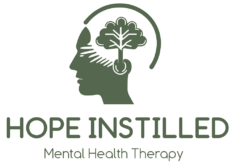DOMESTIC VIOLENCE
Plant seeds of happiness, hope, success, and love; it will all come back to you in abundance. This is the law of nature.” – Steve Maraboli
DOMESTIC VIOLENCE AND ABUSE THERAPY IN NEW JERSEY
Domestic violence—often referred to as “domestic abuse”, “interpersonal trauma” or “intimate partner violence (IPV)”—is a form of abuse that occurs within a domestic or close relationship and can significantly impact a person’s mental and emotional well-being.
The U.S. Department of Justice defines it as “a pattern of abusive behavior in any relationship that is used by one partner to gain or maintain power and control over another.” While many people think of domestic violence as involving romantic partners or spouses, it can also occur in relationships with parents, children, siblings, relatives, or roommates.
Importantly, abuse is not limited to physical harm. It can include emotional, psychological, verbal, sexual, and financial abuse—any behavior intended to manipulate, isolate, intimidate, or control another person. In a therapeutic setting, it’s crucial to recognize and validate the wide-ranging effects these experiences can have, including trauma, anxiety, depression, and difficulty forming safe relationships.
At Hope Instilled, our therapists are committed to supporting individuals impacted by domestic violence as they find the strength to leave abusive relationships and begin the journey toward healing.
We’re often the first person a client entrusts with their story, and we’re deeply honored to hold that space with care and compassion.
We know this path is not easy, but know that healing—physically, emotionally, mentally, and spiritually—is possible. It all begins with creating a safe, welcoming environment. Our counselors prioritize building trust and comfort so you can share your story without fear or judgment. You deserve to feel safe, heard, and free from abuse—because everyone deserves a life free of violence.
SEEKING HELP FOR DOMESTIC VIOLENCE & ABUSE IN NEW JERSEY
If you or someone you care about has experienced domestic violence, seeking a professional evaluation and treatment is strongly encouraged.
At Hope Instilled, we understand that your mental health is essential, and we’re here to help you tap into its strength so you can live a happier, more fulfilling life. You are more than just a case file to us — we reject one-size-fits-all solutions for treating interpersonal trauma.
We believe mental health care should be accessible, personalized, and welcoming for everyone who needs support.

The Power & Control Wheel
The Power and Control Wheel was created by the Domestic Abuse Intervention Programs (DAIP) in 1984 to help educate abusers and illustrate the experience of the people they harm.The Wheel explains how the abuser gains power and control over the person they’re abusing — and why it’s so challenging to leave these relationships behind.
The image below shows both healthy models and unhealthy models.

Schedule a Free 15 Minute Consultation Today
There’s no reason to delay. Connect with Hope Instilled today, and take a step towards your mental health goals. We’ll be happy to take your call.
Getting Started Is Simple

- Fill out the form on our Contact Page and we’ll gather some information and set up a 15 minute call with a therapist.
- Attend your 15 minute welcome call. You’ll have a consultation where you can share how you’re feeling and decide on the next steps together.
- Make Progress & Feel Better – Work with me to resolve your mental health issues and become more confident in yourself.
- Aftercare – I would love to say that every success is permanent. However, life has its detours which may lead you back to me for a return visit. It’s OK, we would love to chat again and help you get back on the road to mental wellness.
Frequently Asked Questions
Experiencing domestic violence can be deeply traumatic and have a profound impact on a person’s mental health. It is often linked to conditions such as depression, anxiety, and insomnia. Even in the absence of physical injuries, survivors may exhibit signs like emotional distress, social withdrawal, and self-destructive behaviors.
Domestic violence involves patterns of aggressive behavior within the home, often perpetrated by an intimate partner. Abuse can take many forms—emotional, physical, or sexual. It may begin subtly, disguised as common relationship issues like jealousy, controlling behavior, or belittling comments, but over time, these can escalate into name-calling, character defamation, or public humiliation.
If you’re in an abusive relationship, know this: it is not your fault, and you do not deserve to be treated this way. The danger is real, and your safety matters. You don’t have to face this alone—having a support system can make all the difference as you take steps toward safety and healing.
While verbal abuse might not leave visible scars, its emotional impact can be just as profound and long-lasting as physical violence. Survivors often carry deep psychological wounds, and it’s important not to minimize this form of abuse simply because it doesn’t involve physical harm.
Verbal abuse can take many forms, including constant threats, gaslighting, and harsh or demeaning criticism. Regardless of the abuser’s intent, these behaviors must be taken seriously and addressed.
Coping with a Verbally Abusive Partner
Speak up about abusive behavior when it’s safe to do so.
Use clear, assertive language to express that the abuse must stop.
Avoid responding with verbal attacks, as this can escalate the situation.


